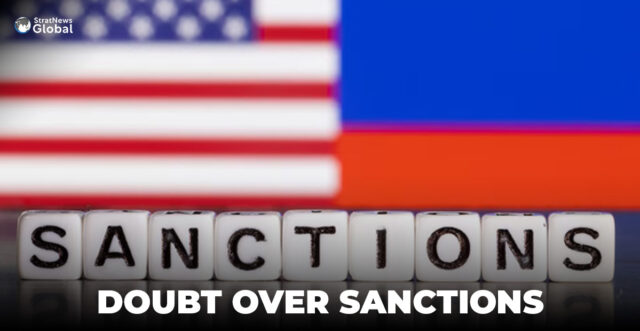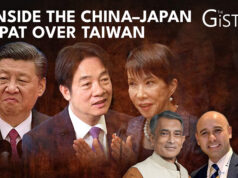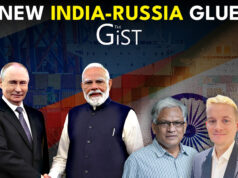Sanctions are clearly impacting Russia’s economy, but United States President Donald Trump is leaving allies uncertain about whether he will approve additional measures, even though Washington is a party to the G7 agreement to coordinate actions against the Kremlin, the EU’s sanctions chief told Reuters.
Last week, the Group of Seven (G7) nations – the U.S., Japan, Canada, Britain, France, Germany and Italy – agreed to coordinate and intensify sanctions against Moscow over its war in Ukraine by targeting countries that buy Russian oil and thereby enable sanctions circumvention.
Those countries were not named, but India, China, NATO-member Turkey and others have significantly increased their Russian crude purchases since Moscow invaded Ukraine in February 2022.
The U.S. has imposed an extra 25% tariff on imports from India to pressure New Delhi to halt its purchases of discounted Russian crude oil, bringing total punitive duties on Indian goods to 50%.
But Washington made no such move towards other Russian crude importers. It is also not clear if Washington would support any further sanctions against the Kremlin.
“That’s sort of the great unknown of the situation,” EU sanctions envoy David O’Sullivan told Reuters in an interview.
“There are signs he (Trump) is losing patience with President Putin … but whether that will lead him to conclude that America should put additional sanctions on Russia is an open question,” he said, adding the U.S. needed to catch up to the rest of the G7 on sanctions after its earlier focus on peace between Russia and Ukraine.
For example, the EU, Britain, and Canada lowered the G7 price cap on Russian crude oil to $47.60 a barrel as of early September from $60 previously, but the U.S. did not join, a move O’Sullivan called “regrettable”.
Trump has been pushing for tariffs on major importers of Russian crude, but O’Sullivan said many countries in the EU, as well as Canada and Britain, are “less convinced” they would work and believe pressure on ports, the shadow fleet, and refineries would be more effective.
Western powers want to capitalise on Russia’s slowing economy by cutting off more of Moscow’s still significant revenues from oil and gas.
O’Sullivan said he would welcome more U.S. pressure on EU members Slovakia and Hungary to end their oil and pipeline gas purchases – a sticky issue for the bloc. Meanwhile, the EU wants to accelerate the phase-out of its Russian liquefied natural gas (LNG) imports in its proposed 19th package of sanctions.
O’Sullivan said Western sanctions against Russia were clearly working. “All the indicators in the Russian economy are flashing red,” he said.
“All of this is indicative of the extent of the pressure Russia is under as a result of our sanctions. But of course, they are constantly creating new means of circumvention and new ideas about how to get around these sanctions, and we have to close those loopholes.”
Tougher On China
With the U.S. commitment to additional sanctions uncertain, the EU is pursuing a parallel strategy by targeting Russia’s key enabler: China.
The EU, Ukraine and its allies view China as a central node in Moscow’s sanctions evasion network by facilitating the flow of battlefield goods and advanced microelectronics used in drones and missiles.
Efforts to engage Beijing have stalled as China denies doing anything other than “normal trade” with Russia three years into the Ukraine war.
“For example, drones, which may be technically speaking non-military until they’re made military – but … they don’t accept that this is circumvention,” O’Sullivan said.
“We are slowly starting to address the issue of bad actors in China.”
Brussels began listing more significant entities in third countries in its recent sanctions. Its 18th package added two Chinese banks and India’s second-largest refining complex, while the 19th package, which is still being negotiated, is expected to list independent Chinese refineries and central Asian banks.
“We do see evidence that China is a platform for the import and re-export to Russia of quite significant numbers of battlefield goods … We would infinitely prefer to have a more constructive, systemic dialogue with China, but so far they seem unwilling,” he added.
(With inputs from Reuters)





